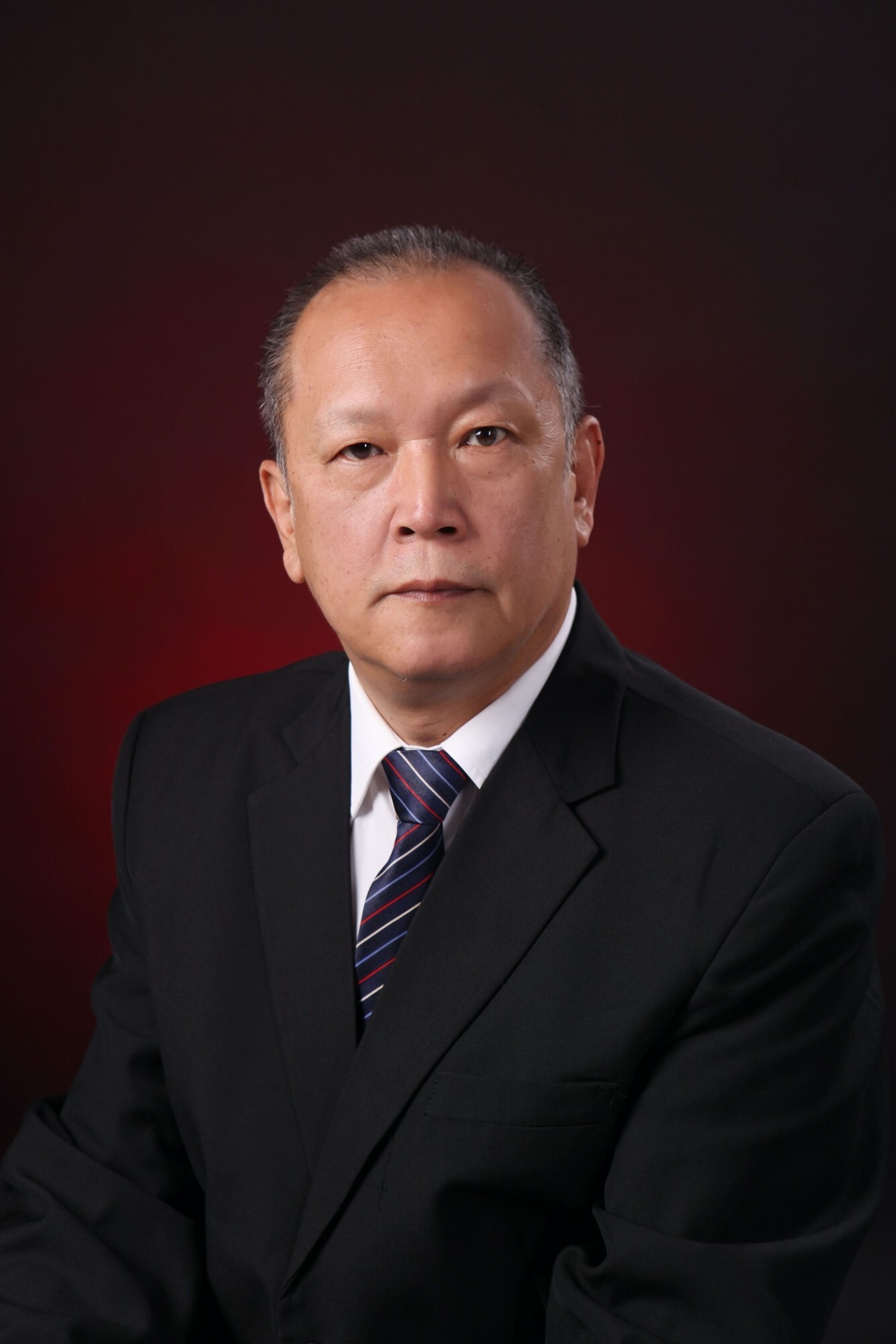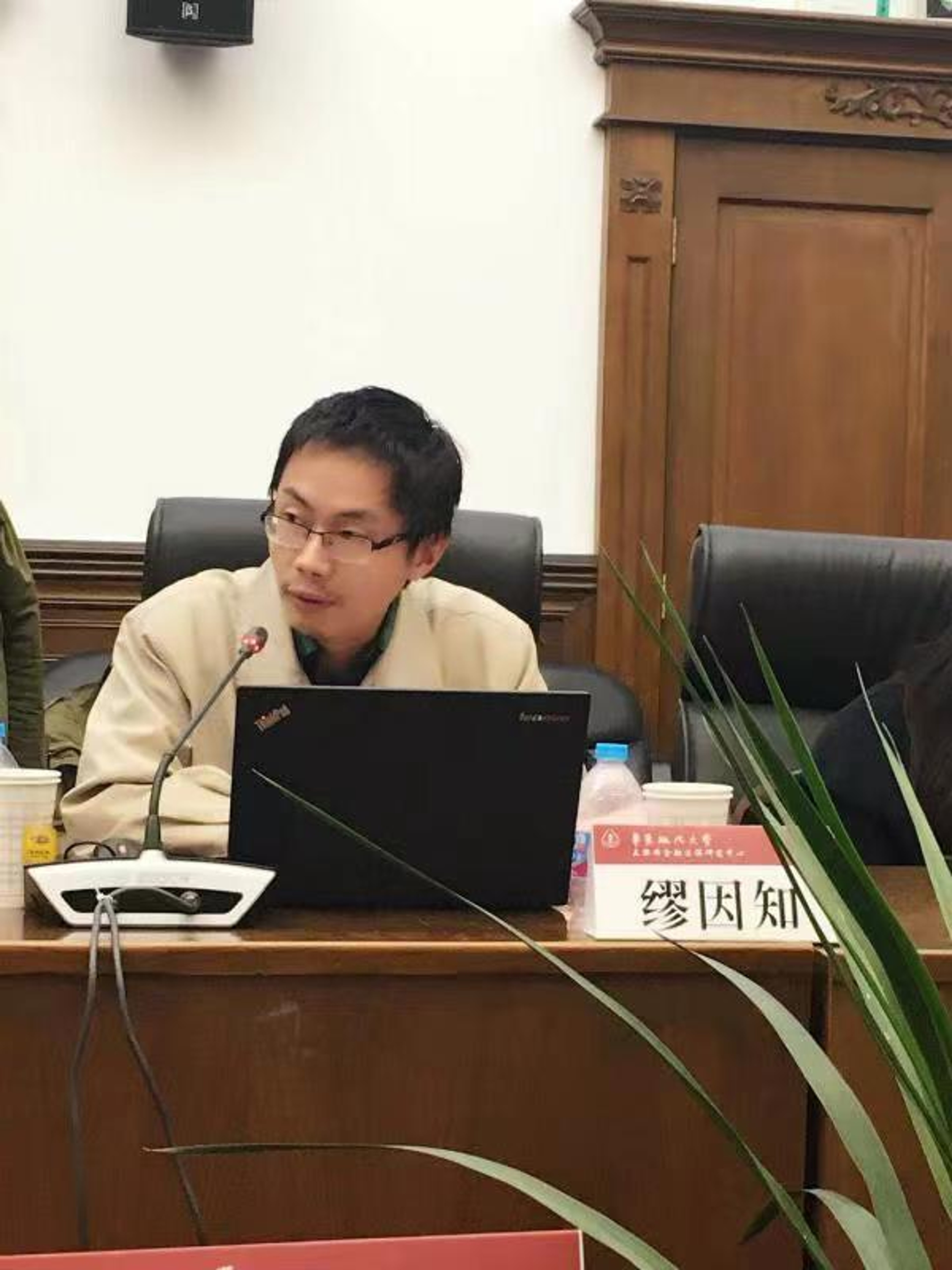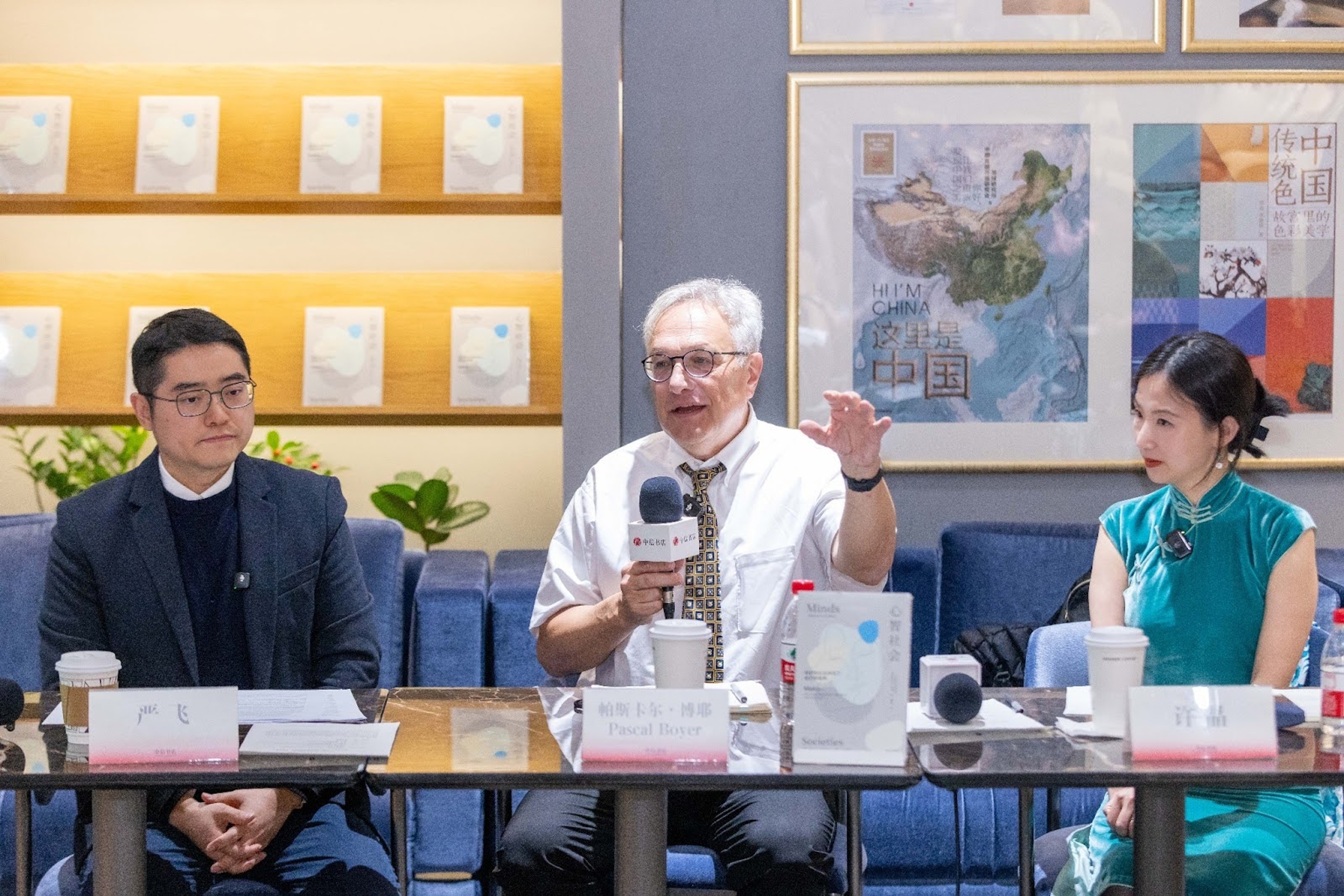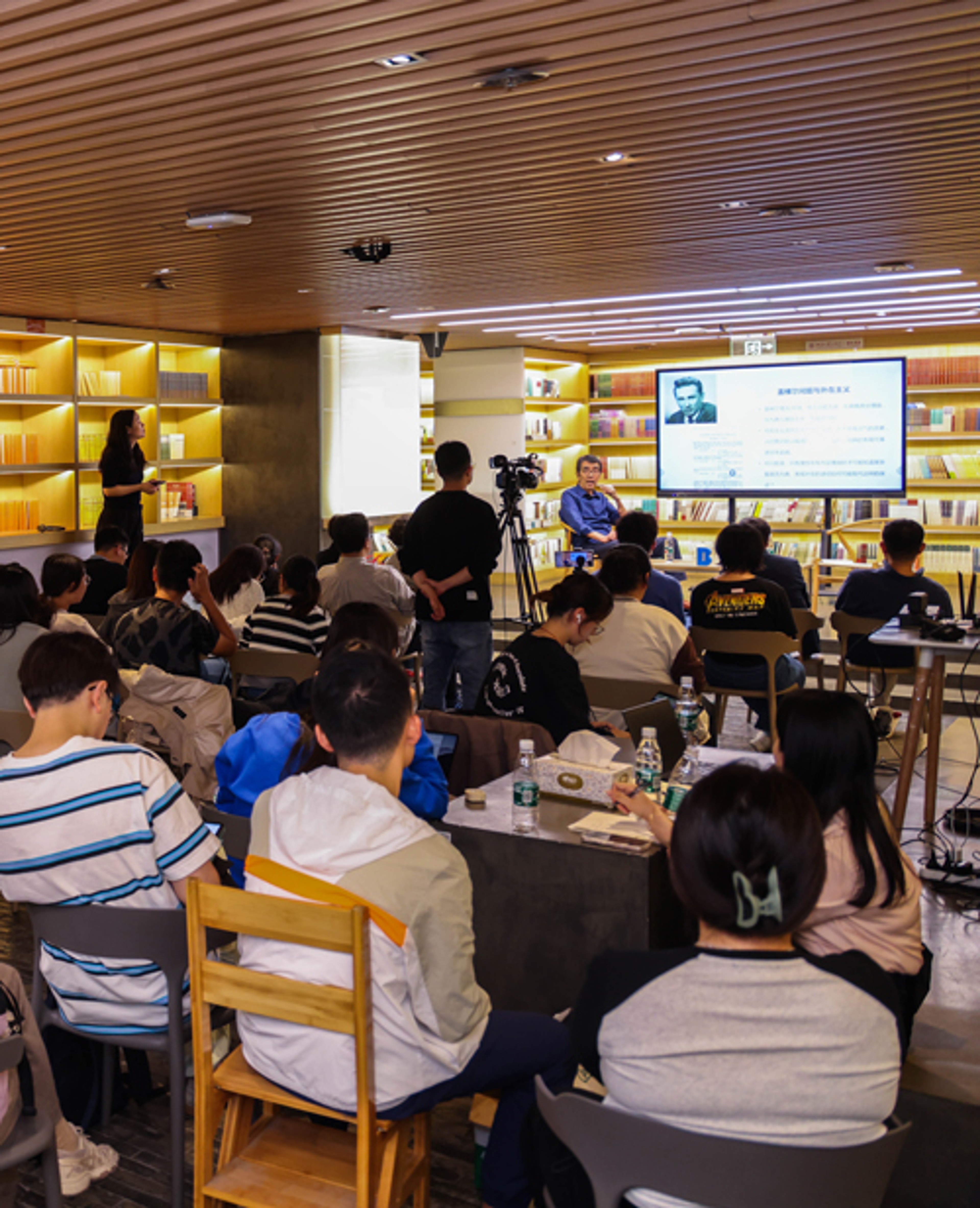Planetary Pluralism: A Humanistic Dialogue on Migration to Mars

- Date: July 6, 2024
- Location: CITIC Bookstore – Sanlitun
This dialogue will delve into the realities of human becoming a multi-planetary species, contrasting the allure of technological advancement with the complexities of life on Mars. Drawing on perspectives from science fiction, the philosophy of science, legal studies, and pluralism, speakers will tackle both the ethical and practical challenges of interplanetary migration.
On July 6th, 2024, at 2:00 p.m., the 28th session of the Berggruen Seminar, titled “Planetary Pluralism: A Humanistic Dialogue on Migration to Mars” was held at CITIC Bookstore in Sanlitun, Beijing. Asher Jiang, the 2023-2024 Berggruen Fellow and Tenured Professor at the Department of Philosophy at Tsinghua University, presided over the dialogue-format seminar.
Along with Asher, there were three guests: Hao Jingfang, the 2020-2021 Berggruen Fellow and science fiction writer; Liu Bing, Professor at the Department of History of Science at Tsinghua University; and Miao
Yinzhi, Professor at the School of Law at Nanjing University.
Amid groundbreaking advancements in life sciences, space technology, artificial intelligence (AI), and space travel; the idea of human migration to Mars has transitioned from one of theorical conception to practical exploration. However, beyond this blueprint's technical and financial considerations, there lies profound humanistic issues, such as human identity and social structural transformation. Through an interdisciplinary perspective, the dialogue examined the diverse facets of Mars migration.
It featured a rational yet humanistic discussions on topics like the construction of communities and social architecture for Mars migrants, establishment of new planetary governance orders, geopolitical dynamics between Earth and Mars, cultural impacts of technological innovation, and resulting ethical dilemmas from Mars migration.
Space Exploration: The Purpose, Cost, and Motivation of Interplanetary Migration
At the beginning of the seminar, Prof. Liu Bing examined the potential motivations and challenges of interplanetary migration from both fictional and real-world dimensions. He underscored the ongoing tension between resource utilization and future exploration. In science fiction narratives, interplanetary migration often emerges as a last-ditch effort to preserve humanity in the face of apocalyptic crises, inevitably raising ethical dilemmas like the “choice of survivors.”
In reality, plans for Mars migration do not urgently address such “last survivor” scenarios. Rather, they reflect humanity’s ambition to expand its developmental frontiers and hopes for the future. However, assessing the necessity of Mars migration requires considering a variety of factors such as Earth’s limited resources, the substantial investments required, technological demands, and uncertain outcomes. Therefore, from a utilitarian perspective, further deliberation is needed to determine
whether migration to Mars is currently essential and if it achieves the intended goal of enhancing humanity’s well-being.
Prof. Asher Jiang believed that frontier exploration and migration are fundamental elements of human history. He supported Elon Musk’s vision to transform humanity into a multi-planetary species, considering it reasonable from the perspectives of civilizational evolution and macro-strategic planning. Yet, he noted that the conceptual appeal of such a grand goal does not necessarily lead to wide public acceptance and
practical implementation. Besides, elites capable of surviving on Mars could also enjoy superior living conditions on Earth, which may reduce their motivation for migration to Mars.
Prof. Miao Yinzhi focused on the legal and judicial dimensions of Mars
exploration. He pointed out that current Mars exploration activities are voluntarily carried out by private enterprises and are not publicly funded, thus they do not require public support for legitimacy. Similar to the pioneers who settled in North America and Australia, the earliest interplanetary migrants were driven by personal desire for adventure rather than the overall welfare of humanity or the maximization of individual interests. In legal discussions, it is crucial to address the actual needs and genuine motivations of migrating communities, rather than viewing utilitarian motivations as the sole basis for their actions.
Prof. Miao argued that individual freedom of migration should be respected in this new wave of the “Age of Exploration.” Should future dynamics involve government participation and intervention, it would inevitably lead to broader and deeper discussion on social ethics. Currently, the key legal issue is whether companies should be allowed
to exercise quasi-governmental functions and how their corresponding rights and obligations should be defined. This indicates unprecedented types of cases, necessitating timely adjustments and innovations in existing legal frameworks.
Hao Jingfang shared her insights from an economic perspective. She noted that governments, constrained by budget limitations, tend to adopt a risk-averse approach in decision-making. Consequently, the advancement of Mars migration will heavily rely on the participation of commercial and civilian parties. By drawing a comparison with the motivations of North American settlers who escape the rule of the English crown and the desires of early advocates of blockchain technologies who sought out “decentralization” and egalitarian freedom, she explored the potential non-traditional motivations behind Mars migration. These motivations may extend beyond basic survival needs, reflecting humanity’s aspirations for space and a desire to transcend
existing social models.
Mars Governance: Composition of Migrants and their Social Attributes
The establishment of a Mars migrant society marks the advent of the post-Anthropocene era, signifying an entirely new set of institutional practices and philosophical ethics. We must examine its social structure in phases, as the composition of the earliest migrants will have a direct impact on the overall cultural landscape of a Mars society. Prof. Asher Jiang emphasized that the Mars migration model differs from both the historical maritime landing of the Americas and the operational model of modern research stations. While the America’s offered a more forgiving environment for survival, the hard conditions on Mars require migrants to
possess specialized skills and psychological resilience.
Moreover, unlike long-term occupants of space stations, early Mars missions could potentially be one-way with minimal chance to return to Earth. Therefore, the implementation of Mars migration plans will face both technological barriers and harsh environmental conditions. These barriers and conditions will place exceptionally high requirements on the type of qualities and skillsets for members of a Mars migrant community, thus requiring rigorous qualification assessments and selection.
With her acute insights formed by science fiction, Hao Jingfang anticipates the cultural forms emerging from a Mars community dominated by scientific research. In her opinion, a Mars society will differ significantly from that of Earth’s agricultural and maritime civilizations as it core operational mechanisms may favor precise and automated production systems. This is seen in two main aspects.
First, a well-defined system of rules and strict adherence by rational individuals will be essential for social stability and survival; and second, rationalization and automation are expected to become prominent features of the Mars society. Given Mars’ resource constraints and closed environments, traditional models of free trade and power-based distribution, which characterized early human civilization, may be impractical. Instead, the Mars society will likely adopt a system of public
ownership, utilizing artificial intelligence for precise resource exploration and allocation. This approach will minimize the uncertainties caused by human factors achieving both fairness and efficiency. Such a governance approach, based on rationing and intelligent technology, will profoundly reshape power relations and interaction patterns among individuals.
Prof. Liu Bing revealed that Mars, seemingly neutral in nature, is actually an idealized construct based on funding and personnel composition, concealing a paradoxical trap of utopia and dystopia. In the space environment where resources are scarce and emergencies are frequent, pre-set rational principles and legal frameworks will face unprecedented challenges. Plans for Mars migration not only indicate the enrichment of both resources and culture but also entail potential conflicts and power
struggles.
Planetary Order: The Epoch of Mars Autonomy and the Formation of
Interplanetary Identity
As Solaris, a 1961 science fiction novel by Polish writer Stanislaw Lem (1921- 2006), states, “We have no need of other worlds. We need mirrors.” Interplanetary expansion is not just about extending our reach across space and time, it also offers humanity a chance to reflect on its existential meaning. By situating Earth’s time-space measurements—long the foundation of human self-definition—within the vast cosmic
scale, we gain a broader perspective for evaluation.
Prof. Miao Yinzhi highlighted that in the disputes over sovereignty and ownership on Mars, there are two opposing viewpoints, namely “firstcomer” and “prior-consultation.” The former adheres to the unwritten historical principle of “first come, first served,” while the latter advocates for principles established by the Antarctic Treaty (1961) and the Agreement Governing the Activities of States on the Moon and
Other Celestial Bodies (1984), which emphasizes resource sharing and international cooperation. The divergence in attitude among countries raises a critical question: Do Earthlings have the right to claim celestial bodies, including Mars, as common property? Does this viewpoint imply a form of Anthropocentrism? The portrayal of “Martian rebellion” in popular culture often mirrors historical biases, revealing an entrenched colonialist mindset.
Drawing parallels with Canada and Australia’s experience of obtaining self-governance from Great Britain, Mars eventually will gain its independence following human exploration. Once Mars achieves self-sufficiency and no longer requires material support from Earth, it will naturally develop its own unique political philosophy, evolving from an Earth-dependent state into an autonomous community. At that point, humanity may need to reassess its relationship with Mars.
Furthermore, the Mars ecology will foster a post-human identity based on entirely new geological connections. Prof. Asher Jiang added that the low-gravity environment and pressures during space travel will compel changes in human physiology and cognitive structures. Over time, Mars will evolve into a comprehensive society with a larger population with specialized divisions of labor. The first-generation migrants will transform into a diverse group of Martian residents. These changes will be reflected not only in physiological qualities such as enhanced physical capabilities and higher intelligence, but also in the cultural identity of Martians, as the second and third generations may, based on sufficient physiological grounds, increasingly disassociate from their Earthling heritage.
Hao Jingfang acknowledged that Martians will likely develop unique physical traits and appearances. However, since physiological structure remains a defining criterion for defining species, shared genetic connections between Martians and Earthlings may still trigger a sense of common identity based on their shared origin or potential kinship.
Prof. Liu Bing, drawing from the intertwined history of conflict and peace among nations, emphasized the potentially complex relationship between Earth and Mars in the future.
Prof. Miao Yinzhi further pointed out that countries with shared racial or ethnic backgrounds (such as the UK and the US) often develop special emotional bonds and relatively friendly diplomatic relations. This observation may offer insights into the future political dynamics between Mars and Earth.
During the question-and-answer section, the audience, with their fascination with Mars migration and curiosity about the unknown, posed questions to the guests about the abilities required for migration, historical unpredictability, and the potential impact of Mars migration on Earth.
Regarding the continuity and breaks between past and future, the guests
emphasized that predicting the future is not the role of historians. The unknown remains elusive because it extends beyond the boundaries of current knowledge and experience. Once it becomes predictable, it ceases to be unknown.
When asked whether Mars might become a “brave new world” in the future, the guests offered neutral and cautious perspectives. Even based on current scientific principles and social development trends, the future trajectory of Mars society is fraught with uncertainties. Whether Mars will develop into an authoritarian or democratic society, or whether it will be peaceful or tumultuous, will depend on the interplay between adaptability, environmental conditions, and various other factors. The future societies on Mars will carve out their own destiny, thus excessive concern or attempts to forcefully control it are futile. In the face of future human exploration like Mars migration, we should approach it with humility, openness, patience, and generosity, acknowledging that contingency and unpredictability are inherent in our world.
Edited by He Qirui
Speakers

HAO Jingfang
2020-2021 Berggruen Fellow, Science Fiction Writer
The novel Beijing Folding won the 74th World Science Fiction Hugo Award.

Asher JIANG
2023-2024 Berggruen Fellow; Tenured Professor, Department of Philosophy, Tsinghua University
Specializing in analytical philosophy and metaphysics.

LIU Bing
Professor, Department of History of Science, Tsinghua University
His main research interests include history of science and technology, science historiography, science culture and dissemination, and philosophy of science.

MIAO Yinzhi
Professor, School of Law, Nanjing University
His main fields of research are economic law and commercial law, with a focus on financial law and commercial organization law.



















